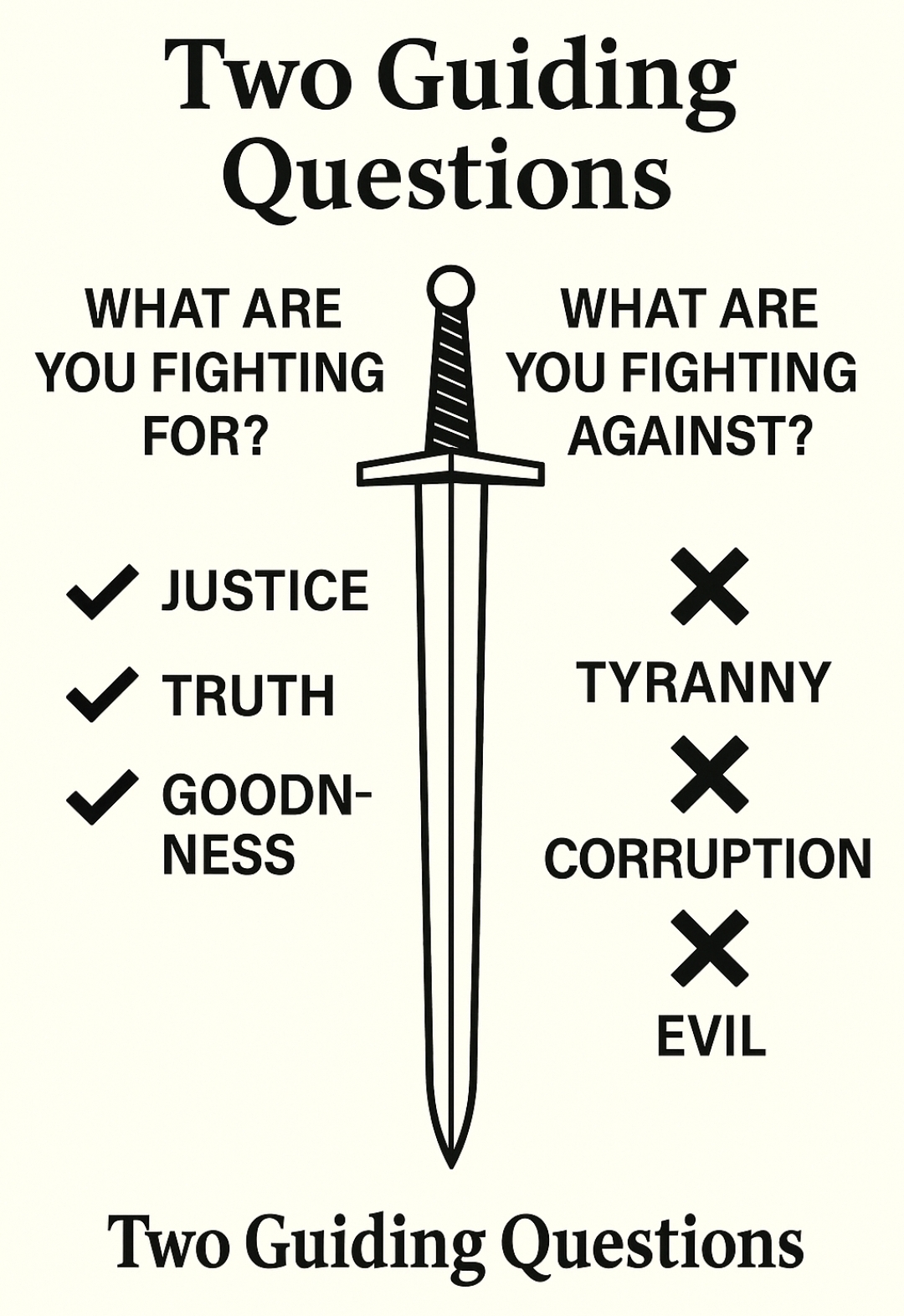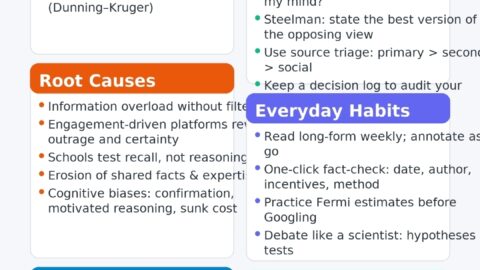“In any struggle, it is essential to know both what you are fighting for and what you are fighting against. If knowledge of the former is lacking, the will to win will be absent If knowledge of the latter is absent, confusion and uncertainty will result.” — J. Edgar Hoover
This quote by J. Edgar Hoover highlights the importance of clarity and understanding in any struggle or conflict. Knowing what you’re fighting for provides purpose and motivation, while understanding what you’re fighting against helps avoid confusion and ensures that your efforts are focused. Hoover is emphasizing that both aspects are crucial for effective action and ultimate success in any struggle.

Identifying and fighting against corruption, ignorance, and tyranny requires a combination of awareness, action, and resilience. Here’s a guide on how to approach each:
1. Identifying Corruption
- Understand the signs: Corruption often manifests as misuse of power, bribery, favoritism, embezzlement, or lack of transparency in decision-making processes.
- Stay informed: Follow reputable news sources, watchdog organizations, and reports that highlight corrupt practices.
- Be aware of conflicts of interest: Watch for situations where personal gain influences official duties or decisions.
- Transparency and accountability: Advocate for and support systems that require public officials to disclose their actions, finances, and decisions.
2. Fighting Corruption
- Support transparency: Encourage or campaign for laws and practices that promote openness in government and corporate sectors.
- Whistleblowing: Support or participate in whistleblowing efforts if you have evidence of corruption, while ensuring that legal protections are in place.
- Engage in activism: Join or support anti-corruption organizations and movements.
- Vote wisely: Elect leaders who have a clear stance and track record against corruption.
- Educate others: Spread awareness about the dangers and signs of corruption.
3. Identifying Ignorance
- Recognize misinformation: Be aware of false or misleading information spread through media, social networks, or other channels.
- Assess critical thinking: Identify situations where people or institutions discourage questioning, critical analysis, or open discussion.
- Education quality: Notice gaps in education systems that fail to provide comprehensive, unbiased, and accurate knowledge.
4. Fighting Ignorance
- Promote education: Advocate for better access to quality education that emphasizes critical thinking, reasoning, and evidence-based knowledge.
- Fact-checking: Always verify information from multiple credible sources before accepting or sharing it.
- Encourage dialogue: Engage in conversations that challenge misconceptions and encourage informed opinions.
- Use technology wisely: Leverage online platforms to spread accurate information and challenge ignorance.
5. Identifying Tyranny
- Monitor the erosion of rights: Tyranny often begins with the gradual removal of freedoms, such as freedom of speech, assembly, or the press.
- Watch for authoritarian behavior: Look for leaders or regimes that centralize power, dismiss checks and balances, and suppress dissent.
- Recognize propaganda: Be aware of government or institutional propaganda that aims to control or manipulate public opinion.
6. Fighting Tyranny
- Stand for civil liberties: Advocate for and defend human rights, freedom of expression, democratic processes and the American Republic.
- Build alliances: Join forces with like-minded individuals, organizations, and movements to resist authoritarianism.
- Resist passivity: Tyranny often thrives when people are apathetic or afraid to take action; small acts of resistance can make a difference.
- Engage in peaceful protest: Participate in or support peaceful protests against unjust policies or actions.
- Support independent media: Back media outlets that are free from government or corporate control and that expose tyrannical practices.
General Strategies:
- Stay informed: Regularly educate yourself on current events, historical contexts, and social issues.
- Build communities: Strengthen networks of like-minded individuals who are committed to fighting against corruption, ignorance, and tyranny.
- Advocate for systemic change: Push for reforms that address the root causes of these issues, such as weak institutions, lack of accountability, or poor education systems.
- Persevere: Understand that the fight against these forces is ongoing and requires long-term commitment and resilience.
By following these strategies, individuals and communities can better identify and effectively combat corruption, ignorance, and tyranny.
This is what I am fighting for.
Identifying and fighting for God (faith), family, and country involves a deep commitment to core values and principles that guide your life and actions. Here’s a guide on how to approach each:
1. Identifying and Fighting for God (Faith)
- Identify Your Faith:
- Understand your beliefs: Know the core tenets of your faith, whether it’s a religion or a personal spiritual journey.
- Live by your principles: Practice the teachings and values of your faith in your daily life, ensuring that your actions reflect your beliefs.
- Stay connected to a community: Engage with a community that shares your faith, providing support, accountability, and growth.
- Fight for Faith:
- Defend religious freedom: Advocate for the right to practice your faith freely and respect others’ rights to do the same.
- Promote tolerance and understanding: Educate others about your faith in a way that fosters mutual respect and combats ignorance or prejudice.
- Engage in service: Demonstrate your faith through acts of service and charity, showing the impact of your beliefs on the world around you.
- Educate yourself and others: Deepen your understanding of your faith and share its values, teachings, and history with others to inspire and inform.
2. Identifying and Fighting for Family
- Identify the Importance of Family:
- Recognize the role of family: Understand that family provides emotional support, nurtures values, and shapes your identity.
- Prioritize relationships: Make time for your family, actively listening and engaging with them to strengthen bonds.
- Fight for Family:
- Promote family unity: Encourage open communication, understanding, and love within your family to build a strong foundation.
- Support family values: Uphold and teach values like respect, responsibility, and love to future generations.
- Advocate for family-friendly policies: Support policies that protect and strengthen families, such as parental leave, child care, and education.
- Be a role model: Demonstrate commitment, patience, and sacrifice in your family life, showing others the importance of these values.
3. Identifying and Fighting for Country and the American Republic
- Identify Your Country’s Values:
- Understand your country’s principles: Learn about the history, founding principles, and core values of your nation, such as freedom, justice, and democracy.
- Acknowledge your responsibilities: Recognize that being a good citizen involves not just rights but also duties, like voting, protecting freedom of speech, and obeying moral and just laws (Civil Disobedience).
- Fight for Your Country:
- Promote patriotism: Express pride in your country’s moral achievements and speak out against wrongs done by immoral acts.
- Engage in civic duties: Participate actively in your country’s political and civic life by voting, volunteering, or running for office.
- Defend your country’s values: Stand up for your nation’s core principles and oppose actions or policies that undermine them.
- Support your community: Work to improve your local community as a way of contributing to the betterment of your country.
General Strategies:
- Live by example: Let your actions reflect your commitment to faith, family, and country, serving as an example to others.
- Educate and mentor: Teach others, especially younger generations, the importance of these values and how to live by them.
- Build strong communities: Foster connections with like-minded individuals who share your commitment to these principles.
- Be resilient: Understand that challenges will arise, but stay firm in your convictions and continue fighting for what you believe in.
By focusing on these areas, you can identify and actively fight for the principles that matter most to you, ensuring that faith, family, and country remain central to your life and society.








One Response
Powerful advice here. I appreciate the effort that you put into your writing.